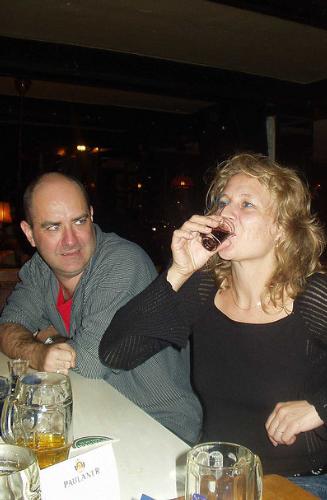Always forgive your enemies; nothing annoys them so much. – Oscar Wilde
What does that mean?
Well, it seems to be stated as if it were a joke, a mind game to play with your enemies. But it is true, it will annoy them immensely, trust me. I’ve been on both sides of this saying.
It is also the healthiest thing you can do for yourself. Just be sure you remember that forgiveness is not the same as reconciliation. You can forgive someone without everything also immediately being set back to the way it used to be. A betrayed trust may be forgiven, but the trust must be earned again, starting from somewhere below zero.
Why is forgiveness important?
Forgiveness helps lift a burden from your shoulders, and allows the healing process to move more quickly. Until you forgive them, you are angry (or worse) at them.
This means that the wound that the event caused is not healing, as you are constantly picking at it. Every time you revisit the anger (or whatever the strong emotion the event caused), you prolong the injury and delay the healing.
Forgiveness is a way of letting go of that emotion that is hindering you. After all, your life is about you, not about them. Release the emotion and begin healing. Keep a careful eye on the person who hurt you, but move forward with your life.
That was all stated in the positive, the case for letting go and moving forward. Looking at it from the other direction, can you come up with a good reason to hold on to the emotion? What does it do to help you?
And the only reason I have ever been able to find in favor of not forgiving? It makes a (barely) passable motivation for a fictional character to do a bunch of dumb things in pursuit of avenging or revenging. Hopefully your life has a bit more depth than a silly little movie or a pulp novel.
Where can I apply this in my life?
To me, forgiveness is a way to decouple myself from the frustration, hurt and anger associated with an event. Once I have done that, I can get back to what is truly important.
I don’t have enough time to keep track of all the people who have done me wrong (based on my silly definitions of the term). Neither do I have the energy to waste on all the emotional baggage that comes with the status of not having forgiven someone. Do you?
Write down a couple of things that are bothering you, things that you have yet to forgive someone for doing (or failing to do). Select one of them for this exercise, remembering that you can always do this again and try a different one.
Start by jotting down some of the critical details. If you can’t fill at least half a piece of paper with the details, how important could it have been? If you can fill half a piece of paper (or more), how much effort are you putting into maintaining this level of emotion? In either case, it might be something to think about, wouldn’t you agree?
One starting place, and my personal favorite, would be to work from the attitude of compassion. Cut them some slack. Imagine how many different ways the event could have happened without any taint of ill will or malice. Even if you are certain there was ill will or malice, consider that perhaps they were raised to a different standard than you were.
Another way that has worked for me is to apply simple logic. Do you have a good answer to all of these questions?
- Do you really care (and why)?
- Do you have the time to waste on this matter?
- Do you have the energy to spare to support these feelings?
- Ten years from now, will it matter to you (and why)?
If you didn’t have a good answer to all of the questions, and good reasons for the first and last ones, you might want to give forgiveness some consideration. Your answer (or lack thereof) to any of these questions should probably be used as leverage to pry yourself away from your fixation on the event and grant forgiveness.
Some would say that even a grudging forgiveness is a start. I would agree, to an extent. It is a start, but a poor one. Forgiveness with conditions, reservations or strings attached isn’t really forgiveness, is it?
Consider someone to whom you would give a partial forgiveness. Then answer the four questions above. Would any of them change if you gave them partial forgiveness? Would the intensity of your emotion changed significantly? Would you feel any better, personally? Odds are you have just come to the same conclusion as I have about partial forgiveness, I hope.
And if you think that forgiveness works well on your enemies, wait until you try it on others, including strangers, acquaintances, friends and family! Try it, you’ll like it!
From: Twitter, @MotivateDaily
confirmed at : http://www.brainyquote.com/quotes/quotes/o/oscarwilde105222.html
Photo by SteveR-


Awesome..keep in touch from Indonesia.
Thanks for stopping by and for leaving a comment. Hello to all the readers in Indonesia.
Pingback: If God forgives us we must forgive ourselves otherwise its like setting up ourselves as a higher tribunal than Him. | philosiblog